|
Interview with Writer
Joshua Lee Ronin
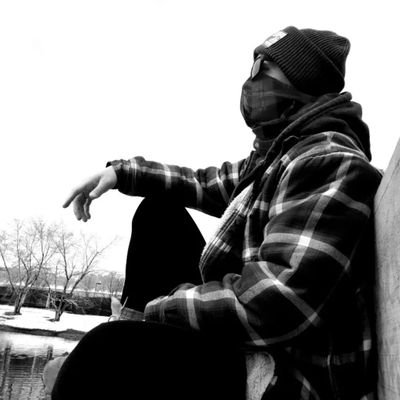
Location Denver, Colorado, USA
Ad Services: https://joshualeeronin.com/advertisingandsupport
Books: https://joshualeeronin.com/booksandwriting
Ko-Fi: https://ko-fi.com/joshualeeronin
Patreon: https://patreon.com/joshualeeronin
Podcast: https://anchor.fm/roninuncensored
Radio Station: https://joshualeeronin.com/roninradio
Website: https://joshualeeronin.com
YouTube: https://youtube.com/channel/UCJT3ljl6CHH673PTYn7QRTg?view_as=subscriber
Ingredients
-
Writer
-
Advertiser
-
Youtuber
-
Blogger
Preparation
-
Artistic Weapon of Choice?
Gotta go with the boring: a computer and a keyboard with good clickety-clackety sounds. It seems weird, but that sound is meditative to me. I spent most of my youth writing things on a computer screen. The sound of a good set of keys takes me into a creative space I find hard to access with anything else. Pressed, I’ll go for a pen and a notebook, but I won’t like a second of it.
Interestingly, I would rather write with pen and paper than sit in front of a computer, hurting my eyes, neck, wrists (If I’m writing an 8 page paper in 5 hours.)
I get the meditative part, they say drawing and painting is meditative, so I imagine it would be similar with writing!
-
Can you tell me more about your monthly book club that you created support authors both traditionally and independently published?
Totally! As an independent writer and a longtime musician, I know how important it is to get that validation from someone appreciating your art. Even a single buy can catapult your confidence and push you to keep creating, which in turn makes you better, which in turn helps you produce more awesome art that people will enjoy. It’s a self-feeding cycle.
Unfortunately, the absence of that validation does the opposite, and this too is a loop. Without that validation, you lose confidence, and no confidence means you stop producing. It’s not a fun place to be in.
I figured: I can’t afford to help everyone. But I can afford to buy one book and donate it to someone out there. In a small way, this supports creators that I feel could use the boost (because I appreciate their work or who they are as a person). Hopefully, this creates a positive loop in their life and they keep making stuff. Maybe it’ll even inspire them to do the same thing and help someone else!
-
On your Youtube you post personal experience of a fiction writer and your process of writing epic fantasy. I know you mentioned 1 book every 9 months...If I thought of only one painting or piece of work that doesn't seem like much, but when I consider a whole body of work which is about 10-15 pieces that is different. Would you ever increase this number? Or does it stay the same throughout a writer's canon?
Ooh, good question! It totally depends on the product. The reference to a book every 9 months is for my epic fantasy works, which are literary monsters (usually over 100,000 words). The drafting process is pretty quick: a few months or so. But the editing process and prep time for launch, as well as the launch itself, tacks more months on top. There’s much more to writing a book than just writing it, unfortunately. As an indie, I also need to be my own marketing and advertising department, I need to set up my own covers, format my own stuff, etc. It’s pretty time-intensive.

But, the epics aren’t the only projects I do. The lighter novels usually take about 2-3 months to finish and I can crank those out pretty easily. I also have a podcast that runs once a week and twice every other week, so my schedule is pretty full.
In general, I advise artists to maximize their creative time and do as much as they can with it. Obviously, you’ve got to balance production with sales. But the third factor is happiness. I like to set a pace that keeps me busy but doesn’t burn me out. Going a bit slowly gives me plenty of time to rest and plan, and it gives my fans lots of time to digest my work!
I am definitely not a fan of editing myself. Be it writing, photography, adjusting scans or photos of my art on the computer. Ugh. Makes me tired just to think about it.
How many books have you written so far? Both Epic and otherwise?
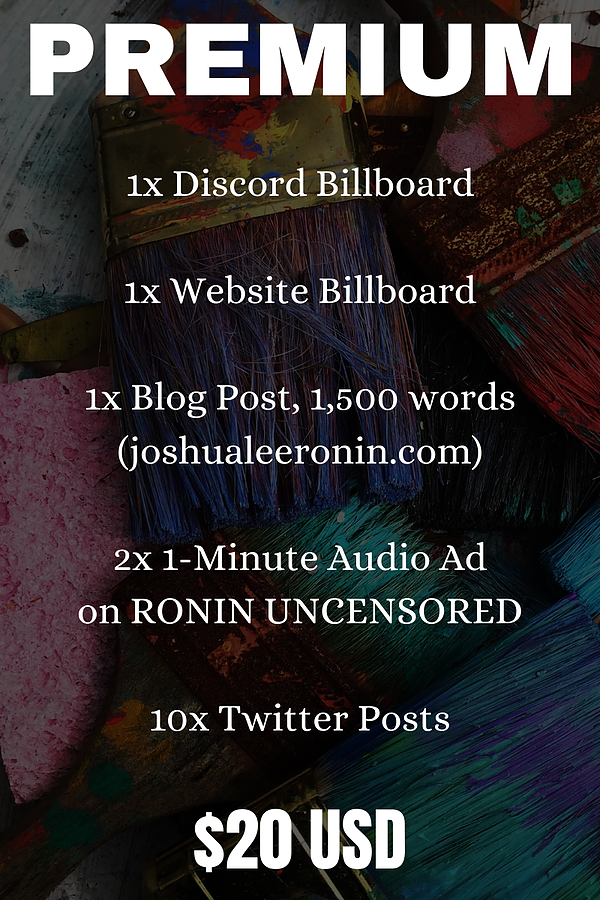
-
You mention basing your progress by counting words. Word count would be like a painter counting brush strokes, I think. That seems tedious! But I suppose that is the difference between artists' media here?
So, I recently started being serious about tracking my writing. As in, I make a note of my final wordcount at the end of every day. In June, I made a concerted effort to sit down and write for one hour every day I had the time. It went pretty horribly, I admit, because I was building the habit. July was much better. My goal is to write one hour every weekday, with no real goal on wordcount other than… well, 1, I guess! Trying is the point.
This habit has actually inspired a small group of other writers to join me every morning for an hour of focused work. It’s pretty cool! We all sit down for an hour and share our screens while we write, holding ourselves accountable to the time. It’s been immensely productive. In that focused hour, on one project alone, I managed to write 26, 219 words in July!
I love that you found a support group, in a sense. That is the help we need from our friends, followers and family.
Wish I had that, both for my art and trying to keep up with exercise.
-
Setting a timer for your writing. Do you find in some ways this can limit or stop you if you get into a good flow?
Oh, the timer! I love setting the timer for my writing. For one, it offers a bit of pressure, and it gives me a definite amount of time to do work. If I slack off outside that timer, then so be it. But while that baby is counting down, I’ve got to focus. It’s drastically helped me improve my production.
My rule with the timer is that I write for as long as it’s on, but I don’t keep going when it stops. I’m pretty serious about that rule, actually. If I keep going after the timer stops, I have a tendency to write myself out. I’ll write to the completion of my idea, which is okay, but then I won’t be excited to return to work the next day because I’m essentially starting blank. I actually prefer it when the timer cuts me off mid-idea. It hurts my heart, because I want to finish the thought, but it also provides the motivation I need to sit down the next day and keep going.
Timers saved my writing life.
-
You spoke of mental illness and how it can affect one's work, would you care to go into any more detail on that now? Absolutely! I’m a mental health advocate – I live with bipolar II, a mood disorder that swings me into periods of deep depression and short bursts of hypomania (lots of energy, scatterbrain, and lack of empathy). Unlike most fictional depictions of the disorder, it doesn’t whip you from hot to cold in seconds. The depressive and manic episodes usually last quite a while, and the big swings happen gradually. Between them are stretches of “normalcy”, where things feel pretty balanced. But, in general, it is an incredibly destructive disorder.
Bipolar has wrecked a lot of things in my life. My mother suffers from a more extreme version, as did some other important adults in my childhood. As you can imagine, that many people with this disorder, all in one place, can cause a lot of chaos.
But one of the things I’ve learned, as I’ve grown, is how miraculous a teacher, pain can be. Counseling and therapy have helped me realize that I’m blessed with this disorder, not cursed with it. My viewpoint on the world and life is unique because of it, and that provides me a special lens with which to focus my art.
I feel like a lot of people see their mental health issues as obstacles that keep them from being normal. And, yeah, maybe that’s true. But the issue there is trying to be “normal”. You can only be who you are. I think if you lean into your mental health issues and embrace them as a part of who you are, you can spend less time being angry with yourself and more time being free. If you’re lucky, you can even harness your illness to help you as an artist. For example, I use my periods of hypomania to produce really quickly (even though I can’t necessarily control what I produce). I used my periods of depression to rest and recharge.
The ironic part here , for me, is that I was just given a “working diagnosis” if you will, buy my new psychotherapist. I have been labelled as chronically depressed for years and have asked about some of the other issues I have had, but few doctors rarely listen to their paintings. In my experience and all across the gamut of doctors, not just the ones in the mental health field.
I have been struggling with figuring out how to deal with that of late. What I mean to say is that this is very useful for me to hear.

-
Jesse (the writer who introduced us) had tried to get me interested in Discord a while back. I have not actively listened to his advice until hearing you mention that on your YouTube page. Can you tell me more about how and why Discord is effective for your writing/ selling/etc?
Discord, for me, works as a place I can hang out with my fans and friends. I can be myself and pull back the curtain on the artist, which I think people appreciate. I tend to follow celebrities and artists who are authentic, but it can be really hard to be yourself on platforms like Twitter or Facebook or Instagram. I feel like using those platforms only allows you to put out little bits and pieces of yourself, and always from a kind of distance.
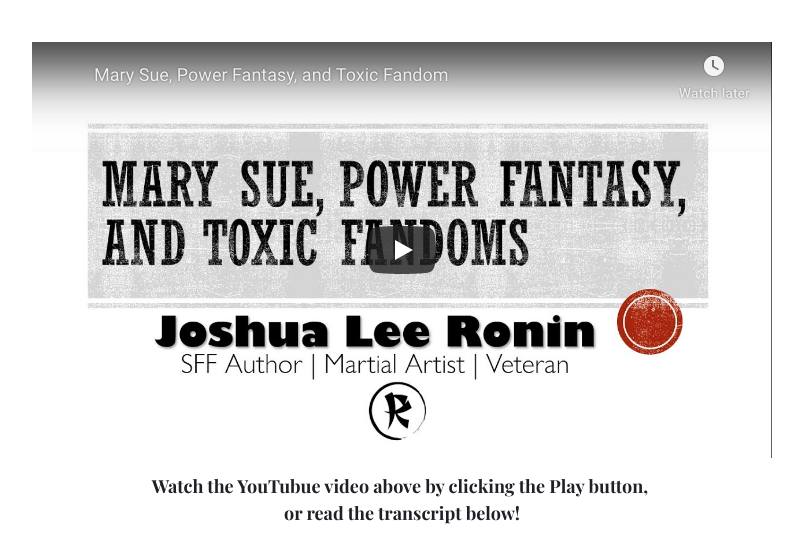
But Discord is different. It’s a chat platform that allows you to communicate directly and in real-time with the people hanging in there with you. It reminds me a lot of the chatrooms I grew up with, honestly, which is probably why I feel so comfortable there. And it offers a kind of personable interaction you just don’t get anywhere else.
Some people in my Discord also struggle with mental illness and mental health issues, for example. The platform allows them to reach out to me (and the others there) in real-time and ask for advice. The same is true for people looking for help with their writing career and people who just want to share some good news.
Overall, my server is meant for me to engage and interact with my fans, to sell my work, and to promote what I’m doing. But it’s also a place where I can hang out with the people who engage with those things, and I think it builds a sense of community and loyalty with me and my work that would be harder to cultivate on other platforms.
-
How do you juggle it all?
Discord, Twitter, Youtube, podcasts, writing, a 24/7radio station, karate, blogging...And you're an advertiser too? I suppose for me this is my version of advertising for other artists.
Schedules, to-do lists, and automation! I won’t lie… I have a lot on my plate. Some days, I look at what needs doing for the day and I just hold my face in my hands, wishing I chose a different path. One of the things about bipolar is that I’ll go through a hypomanic period and be able to easily handle it all for a month, then slip out of that mode and suddenly feel like I can’t handle even half of it. That’s because of the energy change.
Two big things that have helped: creating a schedule that calls for – that demands – periods of rest and recharge. I used to feel like everything needed doing right now or else. But that mentality is changing. My production is of way higher quality when I’m rested and feeling happy. So I try not to work longer than the scheduled work day, I try to take lunches, and I try to incorporate lots of chill time. Most stuff can wait until tomorrow if I haven’t finished it by the end of the day. There’s no rush.
The thing about being a full-time artist is: the whole point of this life is to enjoy your world outside the art you make. The art should support everything else. What’s the point of being a full-time creator if I’m creating all the time and not playing with my pup or taking fun vacations?
So, yeah, I schedule everything, make lots of lists, and automate everything I can. This frees up lots of time.
La Gloria , 18x18, Acrylic on Canvas
You talk about eliminating distractions but multiple screens helps, I think it would be more chaos. Can you explain the use of three screens and how it has helped, not hurt, your process?
The biggest thing is de-cluttering. I think that’s the key benefit. When I was working on one screen, I had so many things open at any one time, and I was constantly minimizing one thing to maximize another thing. I often got lost in all of it. With this interview for example: on one screen, I’d have to either keep switching back and forth between my document and your questions, or putting them side-by-side, which limits what I can see. With multiple screens, I can put my answers on one side and your questions on the other. Looking freely between the two eliminates clicking and allows me to just focus on the task. It also stops me from accidentally opening the wrong tab and scrolling on Twitter for four hours.
Fair enough.
How did you break into being a Full time indie author? Do you have any advice for others trying to do the same?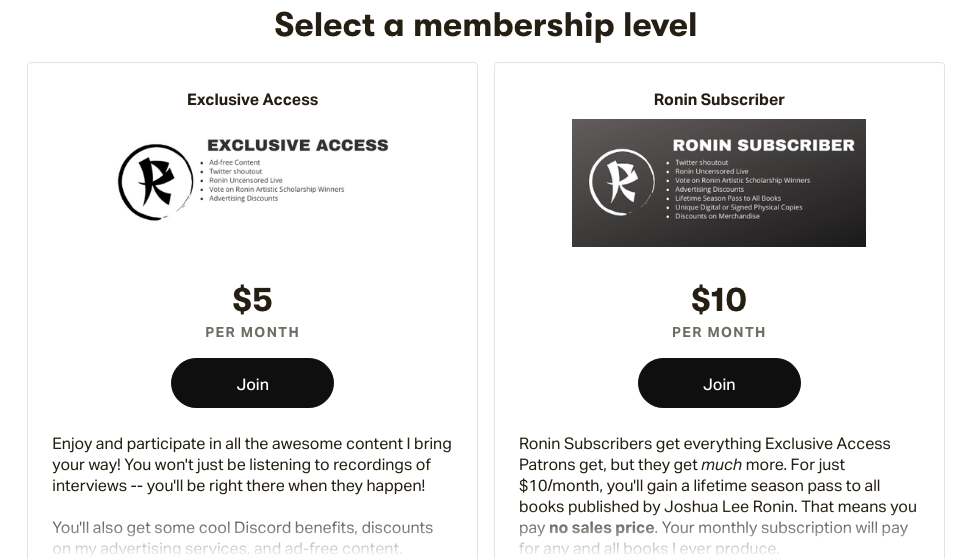
My “break” is essentially not repeatable for other people, unfortunately. I served in the military for six years and accrued a lot of invisible wounds from war, for which I now receive compensation. That financial compensation is what I use to pay rent. The money I make from creative endeavors (podcasting, writing, advertising, etc) is what I used to buy food, etc. I also have an incredibly supportive partner who works hard at a very well-paying job, so that helps too.
If I had any advice to give to people working a full-time job and trying to create on the side: maximize your time and prioritize your art. Work on it when you can, but take your time with it. There’s no rush. Enjoy life when you can, so that you can endure that 9 to 5 and not feel such pressure to succeed as an artist. Life will present opportunities for you to succeed in your endeavors. Don’t go full-time until you know you’ll be comfortable for a while. When you do go full-time, make sure you actually produce things instead of treating every day like a vacation.
Trust me: hanging out and playing video games will make the days go by really fast, and you’ll soon mount months underneath you without having made anything at all. Use your time effectively.
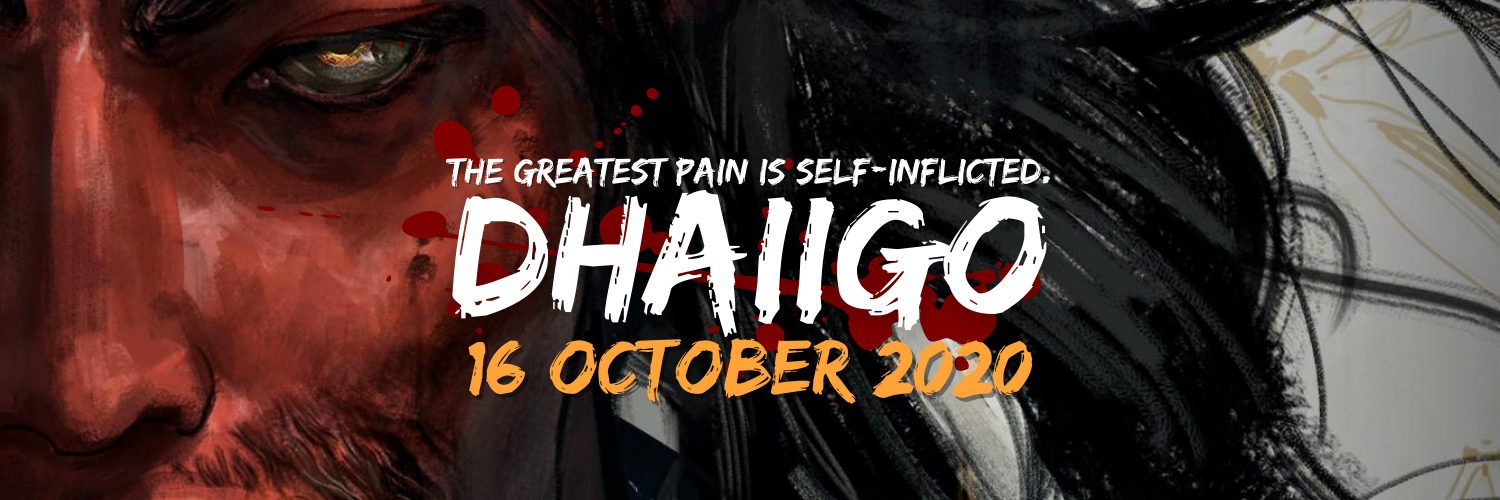
Why Twitter? Not instagram or Facebook? (Instagram seems to work best for my work but again, I'm not a writer).
Have you heard of ello?
I don’t politically support Facebook (or Instagram, since it’s a Facebook subsidiary). I used to work in the intelligence world and I’m very passionate about information security. Facebook’s handling of the Cambridge Analytica scandal was so morally objectionable that I simply can’t support them with my business. Does that mean I miss out on sales opportunities on those platforms? Of course. But I’m willing to take that hit if it means I sleep a little more soundly at night.
I like Twitter because it’s kind of the writer’s platform. It’s based on words, not images. Dealing in words, it just made sense for me. Plus, I can be kinda funny sometimes, which helps there.
I haven’t heard of ello, but I’ll check it out right away!
-
No Amazon account to sell your books? Are they for Patreon Followers only?
No, no, you're accurate! I don't have any books officially on sale. A lot of my public work right now is podcasts and the radio. My debut novel is out in October :)
I’m looking forward to it!
-
You mentioned your relationship with the editor and yourself sending every three chapters. What about your artists? Is it cover art only or art for the inside? Does it start with you telling the artist about your vision? Or do you pick art from an artist that feels like your story?
I loved working with my cover artist. His name is Jan Wessbecher and he’s the most talented visual artist I’ve ever had the pleasure of knowing. (Shameless plug to his site: https://janw.artstation.com/). Jan worked on some traditionally-published book covers that were just absolutely gorgeous, and I desperately wanted to work with him in crafting my own cover. He is immensely talented. He’s also very patient and happy to set realistic expectations, which I loved. I gave him an idea and he ran with it. Honestly, I had very little input. He drafted a few concept sketches, I chose what I liked, and he went to work. It turned out perfectly. I couldn’t be more pleased with his professionalism in business and his quality in art. I absolutely recommend him to everyone.
-
I wanted to mention your scholarship, how did that start?
Oh! The Ronin Artistic Scholarship branches off from a project I started in 2019. I was the original creator of WriteHive, an online writing convention for people who can’t normally attend in-person conventions (because of finances, medical reasons, work/family concerns, etc). That event was entirely crowdfunded, and we pooled a portion of donations into a fund for an artist in need. We ended up raising over $500 for a writer who used the money to buy book covers for her series, which just made me feel so happy.
I like helping people. I like working for a more equitable world. I broke from WriteHive earlier this year to do my own thing. Much of my platform is now crowdfunded, and I’ve enjoyed a bit of success from it. I figured: hey, why not move a percentage of proceeds to a fund for artists in need? I’ve always wanted to be an angel investor and this is as close as I can get without being rich. So, a portion of all my earnings goes to the Ronin Artistic Scholarship. It’s paid out twice a year to artists of all types to help pay for the materials they need to make their art. Whether that’s brushes and canvases or better video editing software or editing services for writers. Whatever it is, this scholarship is meant to help chip away at the costs.
The more artists out there who don’t have to worry about money, the better.
I may be applying to that myself in the future! The Pay it Forward mentality ripples out into the universe. I think the good karma comes back to you.
-
Do you experiment with other art forms and media?
Yes, actually! I started my artistic journey as a musician – a pretty successful one, if I can brag. I played in some moderately popular pop-punk bands back in the day. We had serious followings. Unfortunately, group dynamics and big personalities got in the way, and we split apart. I still do solo music sometimes, and am currently working on an acoustic album! Anyone can find some of my covers on my site, but the original stuff will be exclusive to music channels. I don’t imagine that album is coming out any time soon, though.
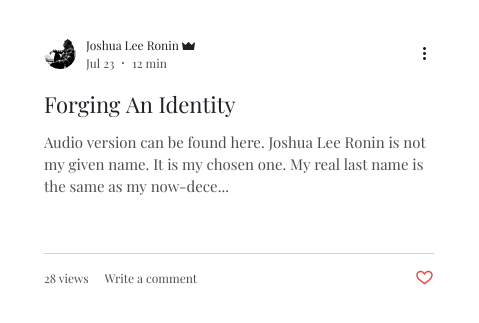 Aww man! Aww man!
-
Who/what influences your writing?
Hoo boy. That’s a big question. I take a lot of inspiration from different sources, and I definitely want to shout out my idol, Miyamoto Musashi, for teaching me to live a life that is uniquely my own. But if I really had to dig deep, I think what influences me most is a tie. For one, my art is therapy. It helps me function as a citizen of this world and be a person in the daytime, you know? If I wasn’t making it, I imagined I’d be a very awful person. The art helps me navigate my issues in a way counseling and therapy just can’t. In many ways, it’s like my medication.

Aside from my personal needs, though, I make art because I have a lot to say on building a more equitable world. I want to throw my work into building a society that’s conscious, peaceful, and compassionate. And I want to use my profits to help fund causes that matter. (For example: portions of my debut novel’s sales will go to addiction support programs and environmental protection organizations). I consider it my responsibility as a human being to take care of this planet and the other people living on it. Hopefully, my art inspires others to think the same.
A lot of people want to save the world, it’s another thing to actually see someone putting forth the time and effort!
-
How has business been during the past few months and what are you doing to adapt?
The coronavirus crisis is a nightmare to most people. It hasn’t really impacted me much at all, honestly. Business continues to grow and I haven’t really needed to adapt. If anything, I’ve gained business because of COVID, and my adaptation will need to occur once people are getting out more and enjoying the world outside. If that ever happens, that is. Right now, people are stuck inside, and they’re scared and frustrated and tuned in to social issues. As an artist, doing what I do, I might as well take advantage of this time to entertain people, make them think, and get them interested in issues that need to be addressed. Like I said before: pain is a teacher. This whole COVID situation is a gift. It’s a chance to reprioritize and focus on making substantial, lasting change. I think we should look at it from that perspective, while of course also being respectful of the damage it’s caused (and why).
-
Of your own work, what would you say is your favorite and why? Or do you have any misunderstood writings?
I can’t pick a favorite kid! No, wait, yes I can. This book I’m working on now – the one debuting October 16 – is by far the best thing I’ve ever written. Not only is it different from the kind of epic fantasy people usually read (it’s got an Asian-inspired setting), but it hits on themes from new angles that I haven’t seen in other work. I draw on my experiences as an addict, a warfighter, and a person with mental illness to craft a deep and meaningful commentary on what it means to be yourself. It focuses on processing trauma, the real wounds war can inflict, and the harshness of addiction on ourselves and those around us. It’s deep, painful stuff. But it’s also beautiful. It’s been a huge source of healing for me and I hope it’ll be the same for my readers.
-
I know you said Dhaiigo is your debut novel but how many books have you written so far? Both Epic and otherwise?
Including DHAIIGO, I've written two books that will likely never see the light of day -- but they are being rewritten. I've got another book I'm working on right now that's almost done. So, very soon, I'll have four books under my belt.
-
Lastly: Do you have any upcoming shows, events or projects you would like to plug?
A million. Haha. DHAIIGO comes out 16 October 2020. It’s a samurai epic fantasy that’s just as poetic as it is brutal. If you’ve ever wanted to read about samurai fighting each other while enhancing their abilities with alchemical potions, you should pick it up. It’s rad.
If you’re interested in thought-provoking conversations with experts, creatives, and regular peeps, you should check out my podcast, RONIN UNCENSORED. I interview people from all walks of life and talk to them about… well, everything. No topic is off the table and each episode is wildly different. It’s a great deep-dive into other people’s lives, and it’s super inspiring (and informative!)
And if you like finding new music, I’ve got a radio station, RONIN RADIO, broadcasting globally and 24/7 from my website. It features my cast as well as other shows being added constantly. It also features independent music from around the world. The whole purpose is to support indie creators out there making cool stuff, so you should go give it a listen and support the indie homies. Everyone on the station is incredible.
Thanks for having me on, Cecelia! I really appreciate the opportunity and I apologize if I got a little longwinded in some places. You asked great questions and, well, I am a writer!
Much love and light to you!
It has been my pleasure!
Thank you for your service!

“Gender isn’t so much a sliding scale as it is a bunch of paint getting mixed around in one can. Some people have different amounts in the mixture, and that’s totally valid. No one should be judged by their mixture.”
~Joshua Lee Ronin
|